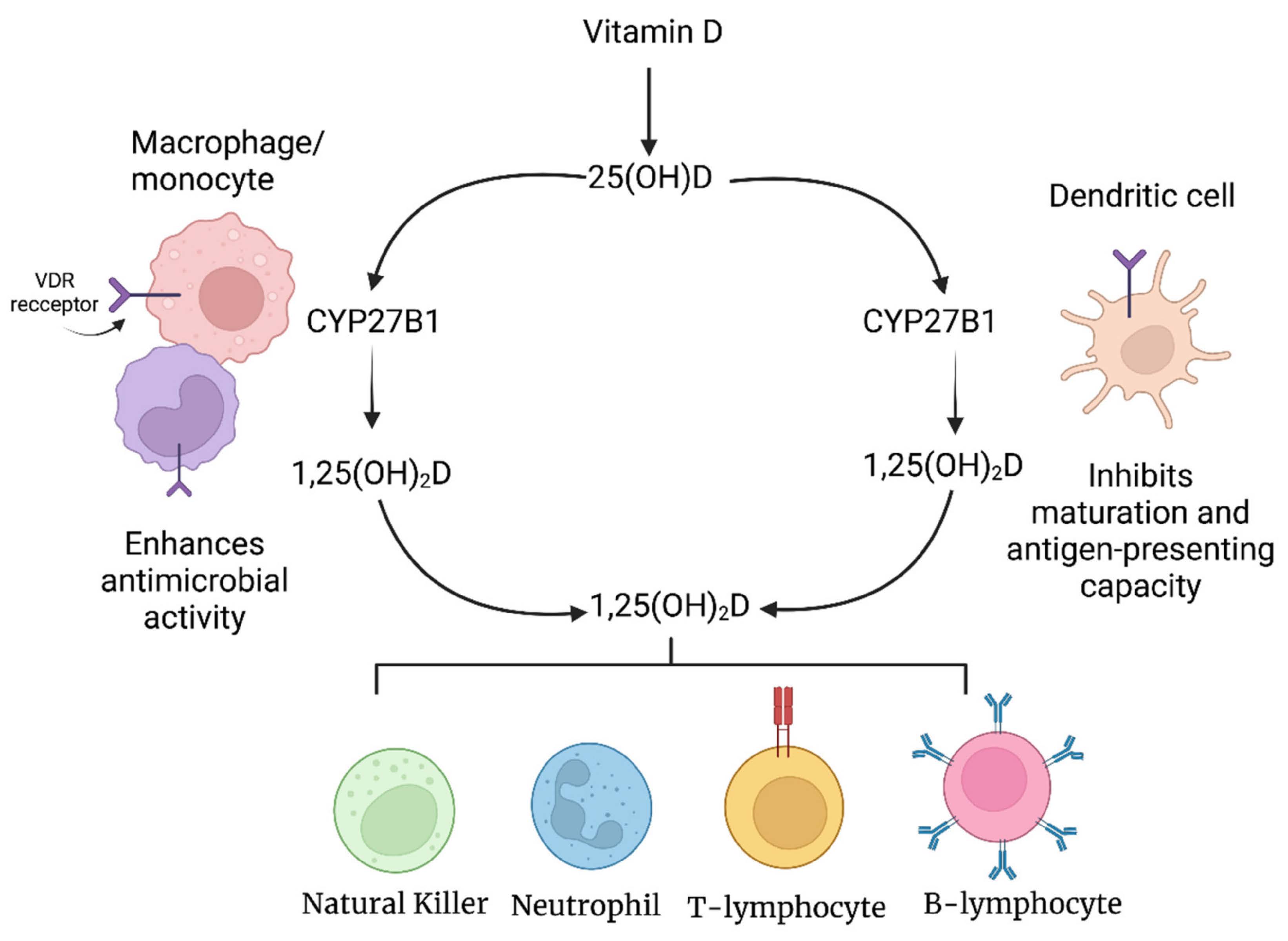Published on August 1, 2024
Vitamin D3, medicinal mushrooms, omega-3s, and other nutrients found to be most effective for activating immune cells and supporting a healthy immune response
Key Points
- A 2022 publication reviewed several immunoceuticals with previously proven effects on the immune system, listing vitamin D3, medicinal mushrooms, quercetin, omega-3 fatty acids, carotenoids, probiotics, melatonin, and micronutrients such as zinc and selenium as some of the most effective
- How efficiently an individual’s immune system works varies greatly based on genetics and factors such as age, sex, diet, their environmental, and their microbiome; individuals can be classified high, average, or low immune responders based on the ability of their immune system to launch a balanced and effective response. Those who are low or average immune responders are more likely to get sick and therefore may benefit more from supporting their immune system through the use of immunoceuticals.
- With vitamin D being a top immunoceutical, deficiency and insufficiency can result in an insufficient or impaired immune response and increase the risk of serious disease; unfortunately, a majority of the population does not get enough vitamin D to fully support their immune response

Immunoceuticals are naturally occurring compounds that are known to strengthen, improve, or fine-tune immune system responses. This is important when fighting off pathogens, such as during a bacterial or viral infection, and in the prevention and treatment of diseases such as cancer, autoimmune disorders, and those caused by chronic inflammation.
A 2022 publication by Tieu et al. reviewed several immunoceuticals with previously proven effects on the immune system. The study authors list vitamin D3, quercetin, omega-3 fatty acids, carotenoids, probiotics, melatonin, and micronutrients such as zinc and selenium as some of the top immunoceuticals. Certain mushrooms are also listed among the top immunoceuticals; these include Shiitake, Maitaki, Enoki, Oyster, and Reishi mushrooms, which have long been known as medicinal mushrooms due to the immune and health boosting properties they offer. Specific immunomodulatory properties of several of these can be found in Table 2 of the paper here.
NOTE: GrassrootsHealth will be interviewing study co-authors Drs. Bonnie Mallard and Niel Karrow later this month. If you have questions for the authors, please send them to [email protected].
How Immunoceuticals Work to Improve the Immune Response
How efficiently an individual’s immune system works varies greatly based on genetics and factors such as age, sex, diet, their environmental, and their microbiome. Individuals can be classified high, average, or low immune responders based on the ability of their immune system to launch a balanced and effective response. Those who are low or average immune responders are more likely to get sick and therefore may benefit more from supporting their immune system through the use of immunoceuticals.
The following illustration provides several examples of how immunoceutical compounds can benefit specific cells and components of the immune response; follow the numbered pink boxes and the list of natural compounds each box refers to.
Vitamin D3: The Key Immunoceutical Discussed in this Review
Vitamin D receptors have been found in almost all immune cell types. These immune cells take vitamin D3 and 25(OH)D from the blood into the cell itself and convert them into the “bioactive” form of vitamin D (calcitriol or 1,25(OH)2D) in high concentrations for immunomodulation purposes, on-demand. The following diagram illustrates this process among specific immune cells.
“Vitamin D is unique among immunoceuticals in that it supports both early immunological activation events and innate host defense mechanisms such as production of defensins, while subsequently also helping to restore immune system homeostasis following activation of adaptive immune responses”
The highest expression of vitamin D receptors has been found among macrophages (which stimulate T cells and secrete chemical signals to initiate a response), T-lymphocytes, developing T cells within the thymus, and CD8+ cells. T-lymphocytes (also called T cells) carry out cell-mediated immunity that does not involve antibodies, but their roles include interacting with macrophages and dendritic cells, directly killing pathogen-infected cells, activating other immune cells, producing signals that talk to all types of cells, and regulating the immune response. There are several types of T cells that specialize in the various roles they perform – you can learn more about each of them here.
Insufficient Vitamin D Levels Lead to an Insufficient Immune Response
Vitamin D deficiency and insufficiency can result in an insufficient or impaired immune response and increase the risk of serious disease. Unfortunately, a majority of the population does not get enough vitamin D to fully support their immune response.
“It is important to note that while many countries may have guidelines for recommended daily dietary vitamin D intake, these are designed for optimal bone health rather than for optimal functioning of the immune system. The immune system, however, is generally the most metabolically active in the body, especially when responding to infections or other diseases.”
The study authors suggest choosing a dose of vitamin D with the goal of achieving and maintaining an optimal vitamin D serum level of 40-60 ng/ml or 100-150 nmol/L (measured as 25(OH)D); this level should provide enough vitamin D to support all systems of the body, not just bone health, for the general population. Some individuals with certain chronic diseases or autoimmune conditions may require a higher target serum level. The dose can be determined based on an individual’s current vitamin D level, target vitamin D level, and weight, using the Vitamin D*calculator here.
“With regard to vitamin D, for example, the current recommended intake guidelines set out by Health Canada and the FDA are solely based on maintaining skeletal health and preventing rickets and have nothing to do with optimizing the function of the most metabolically active system in the body, the immune system. Indeed, the immune system requires a much higher vitamin D intake (e.g., as much as 4000–10,000 IU versus 400–600 IU).”
Are You Getting Enough Vitamin D and Other Essential Nutrients
 Having and maintaining healthy vitamin D levels and other nutrient levels can help improve your health now and for your future. Choose which additional nutrients to measure, such as your omega-3s and essential minerals including magnesium and zinc, by creating your custom home test kit today. Take steps to improve the status of each of these measurements to benefit your overall health. You can also track your own intakes, symptoms and results to see what works best for YOU.
Having and maintaining healthy vitamin D levels and other nutrient levels can help improve your health now and for your future. Choose which additional nutrients to measure, such as your omega-3s and essential minerals including magnesium and zinc, by creating your custom home test kit today. Take steps to improve the status of each of these measurements to benefit your overall health. You can also track your own intakes, symptoms and results to see what works best for YOU.
Enroll and test your levels today, learn what steps to take to improve your status of vitamin D (see below) and other nutrients and blood markers, and take action! By enrolling in the GrassrootsHealth projects, you are not only contributing valuable information to everyone, you are also gaining knowledge about how you could improve your own health through measuring and tracking your nutrient status, and educating yourself on how to improve it.







